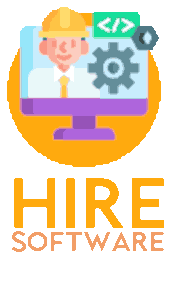Hiring a software engineer can be daunting, especially if you need to gain experience in the field. However, with the right approach and strategy, you can find and hire a top-performing software engineer who can help take your business to the next level.
Here is a step-by-step guide to hiring a software engineer.
Define what a software engineer is
Before we dive into the hiring process, it’s essential to understand what a software engineer is. A software engineer designs, develops, tests, and maintains software applications, systems, and programs. They are responsible for writing code and creating software solutions that solve real-world problems.
Determine your needs and requirements
The first step in hiring a software engineer is determining your needs and requirements. You should establish the skillset and experience needed, consider the work environment and culture fit, and decide on the type of engagement.
Establish the skillset and experience needed
Before sourcing candidates, you should establish the skillset and experience needed for the role. Consider the programming languages, frameworks, and tools required for the job. It would help if you also considered the level of experiences needed, such as entry-level, mid-level, or senior-level.
Consider the work environment and culture fit
Cultural fit is an essential factor when hiring a software engineer. It would help if you considered your company culture, work environment, and team dynamics. You should also consider the soft skills required for the job, such as communication, problem-solving, and teamwork.
Decide on the type of engagement
You should decide on the type of engagement you want for the software engineer. You can choose between full-time, part-time, or contract positions. Consider the software engineer’s location, such as remote or on-site.
Source candidates

Once you have determined your needs and requirements, the next step is sourcing candidates. You can leverage job boards and career websites, utilize social media and professional networks, and reach out to recruitment agencies and headhunters.
Leverage job boards and career websites
You can use job boards and career websites like LinkedIn, Indeed, and Glassdoor to post job ads and search for candidates. These platforms allow you to target specific skill sets, experience levels, and locations.
Utilize social media and professional networks
Candidates can be found on social media platforms like Twitter, Facebook, and GitHub. You can also contact professional networks, such as colleagues, friends, and industry associations.
Reach out to recruitment agencies and headhunters
Recruitment agencies and headhunters can help you find top talent quickly. They have a network of candidates and can help you narrow your search based on your specific requirements. However, be prepared to pay a fee for their services.
Evaluate candidates
Once you have sourced candidates, the next step is to evaluate them. You should conduct initial screenings, use assessments and technical tests, and conduct interviews.
Conduct initial screenings
Initial screenings can help you weed out unqualified candidates quickly. You can use a phone screen or a video interview to ask basic questions and determine if the candidate meets your minimum requirements.
Use assessments and technical tests
Assessments and technical tests can help determine the candidate’s skill level and experience. You can use coding challenges, problem-solving exercises, or technical quizzes to evaluate the candidate’s abilities.
Conduct interviews
Interviews are an essential part of the hiring process. You should conduct a structured interview focusing on the candidate’s skills, experience, and cultural fit. You can also use behavioral questions to determine how the candidate would handle certain situations.
Make an offer and negotiate terms
Once you have identified the right candidate, the next step is to make an offer and negotiate terms. You should determine the compensation package, discuss benefits and incentives, and Draft and present the offer.
Determine the compensation package
The compensation package should be competitive and aligned with the candidate’s skills and experience. You should research industry standards and consider location and cost of living factors.
Discuss benefits and incentives
Benefits and incentives can be crucial factors in attracting and retaining top talent. You should discuss health insurance, retirement plans, vacation time, and other perks to make the offer more attractive.
Draft and present the offer
The offer should be drafted in writing and include all the terms and conditions. You should present the offer in person or over the phone and be prepared to answer any candidate’s questions.
Onboard the new hire

Once the candidate accepts the offer, the next step is to onboard them. You should create an onboarding plan, provide necessary resources and tools, and introduce them to the team and company culture.
Create an onboarding plan
The onboarding plan should include the following:
- An orientation to the company.
- Reviewing policies and procedures.
- Training on the software and tools used.
Provide necessary resources and tools
You should provide the new hire with all the necessary resources and tools they need to do their job. A computer, software licenses, and access to the company’s network and systems can all be included.
Introduce them to the team and company culture
It would help if you introduced the new hire to the team and company culture. A welcome lunch or happy hour, an office tour, and a mentor or buddy system can help them adjust to their new job.
Hiring a software engineer can be a challenging task. Still, you can find and hire the right candidate for your business with the right approach and strategy.
Remember to establish your needs and requirements, source candidates from various channels, evaluate candidates thoroughly, make an offer, and onboard the new hire.
FAQs

When hiring a software engineer, what should I look for?
A. When hiring a software engineer, looking for candidates with relevant education and experience in the field is essential. Look for candidates with degrees in computer science or related fields and work experience in software development.
How do I evaluate a candidate’s technical skills?
A. Several ways to evaluate a candidate’s technical skills include coding challenges, technical assessments, and whiteboard interviews. You can also ask the candidate to provide examples of their past work or projects they have completed.
What skills do I need in a software engineer?
A. It will help if you seek programming languages, frameworks, tools, problem-solving, teamwork, communication, and adaptability skills.
What should I include in a software engineer job description?
A. A software engineer’s job description should include the job title, job duties and responsibilities, qualifications and requirements, compensation and benefits, and information about the company and its culture.
Should I hire a full-time employee or a contractor?

A. It depends on your needs and budget. Full-time employees offer more stability and commitment, while contractors offer flexibility and cost savings.
How long does the hiring process for a software engineer typically take?
A. Depending on the company’s size, hiring needs, and availability of qualified candidates, hiring software engineers can take weeks or months. It’s essential to take your time in the hiring process and not rush into deciding to ensure you find the right candidate for the job.
How are software engineers and programmers different?
A. A software engineer designs, develops, tests, and maintains software applications, systems, and programs. A programmer writes code for software applications and systems.
Should I hire a software engineer as a full-time employee or a contractor?
A. It depends on your needs and budget. Full-time employees offer more stability and commitment, while contractors offer flexibility.
How do you evaluate a software engineer’s skills during the hiring process?

Evaluating a software engineer’s skills is crucial in the hiring process.
Here are some ways to assess their skills:
Technical assessment
Conduct a technical assessment to evaluate the candidate’s proficiency in programming languages, frameworks, and tools relevant to the job. You can ask them to complete coding challenges, solve technical problems or work on sample projects.
Technical assessments help determine if the candidate has the necessary technical skills and experience to perform the job.
Review their portfolio
Ask the candidate to provide a portfolio of their past projects. Review their portfolio to assess their coding abilities, problem-solving approach, and ability to deliver quality work. Look for projects that align with your company’s technology stack and requirements.
Evaluating the candidate’s experience and knowledge is essential to work on projects similar to what they will be working on at your company.
Behavioral assessment
A behavioral assessment evaluates the candidate’s soft skills, such as communication, collaboration, problem-solving, and critical thinking. Behavioral assessments help determine if the candidate has the necessary interpersonal skills to work effectively in a team and adapt to your company’s culture.
Reference check
Conduct a reference check to verify the candidate’s work history, job performance, and professional background. Speak to their previous employers or colleagues to get an insight into their work style, communication skills, and problem-solving abilities.
Reference checks can help you validate the candidate’s claims and make an informed hiring decision.
What are some tips for interviewing software engineers?

Interviewing software engineers can be challenging, but here are some tips to help you conduct compelling interviews:
Prepare a list of questions
Prepare a list of questions that cover the candidate’s technical skills, experience, and soft skills. Use open-ended questions to encourage the candidate to elaborate on their responses.
Use real-world scenarios
To assess the candidate’s problem-solving and critical thinking abilities. Present them with a problem and ask them to provide a solution or walk you through their approach.
Allow time for the candidate to ask questions
Allow the candidate to ask questions to clarify any doubts or concerns they may have. It’s essential to clearly understand the job requirements, work environment, and company culture.
Be respectful and professional
Be respectful and professional throughout the interview process. Make the candidate feel comfortable and welcome. Provide timely feedback and communicate clearly throughout the hiring process.
During the hiring process, what mistakes should be avoided?

When hiring software engineers, avoid these mistakes:
Overemphasizing technical skills
While technical skills are essential, evaluating a candidate’s soft skills is vital. Be aware of a candidate’s communication, collaboration, and problem-solving abilities.
Relying too much on credentials
A candidate’s credentials are necessary. Still, they need to indicate their ability to perform the job. Evaluating a candidate’s experience and skills is essential rather than solely relying on their credentials.
Rushing the hiring process
Take your time to evaluate candidates thoroughly. Rushing the hiring process can result in hiring the wrong candidate or missing out on a qualified candidate.
Not considering cultural fit
Cultural fit is crucial for a candidate’s success in the job and the company. Evaluate a candidate’s values, work style, and communication skills to determine whether they fit your company culture well.
Wrapping up
Hiring software engineers is challenging, but finding the right candidate for the job is crucial. Your company’s growth will be boosted by understanding your hiring needs, evaluating candidates’ skills, and conducting compelling interviews.
Remember to take your time in the hiring process, and don’t rush into making a decision. A bad hire can be costly and time-consuming to replace, so it’s worth trying to find the right candidate.
Hiring a software engineer is a critical decision that requires careful consideration and planning. Finding and hiring an experienced software engineer can be easier with the steps described in this article.







